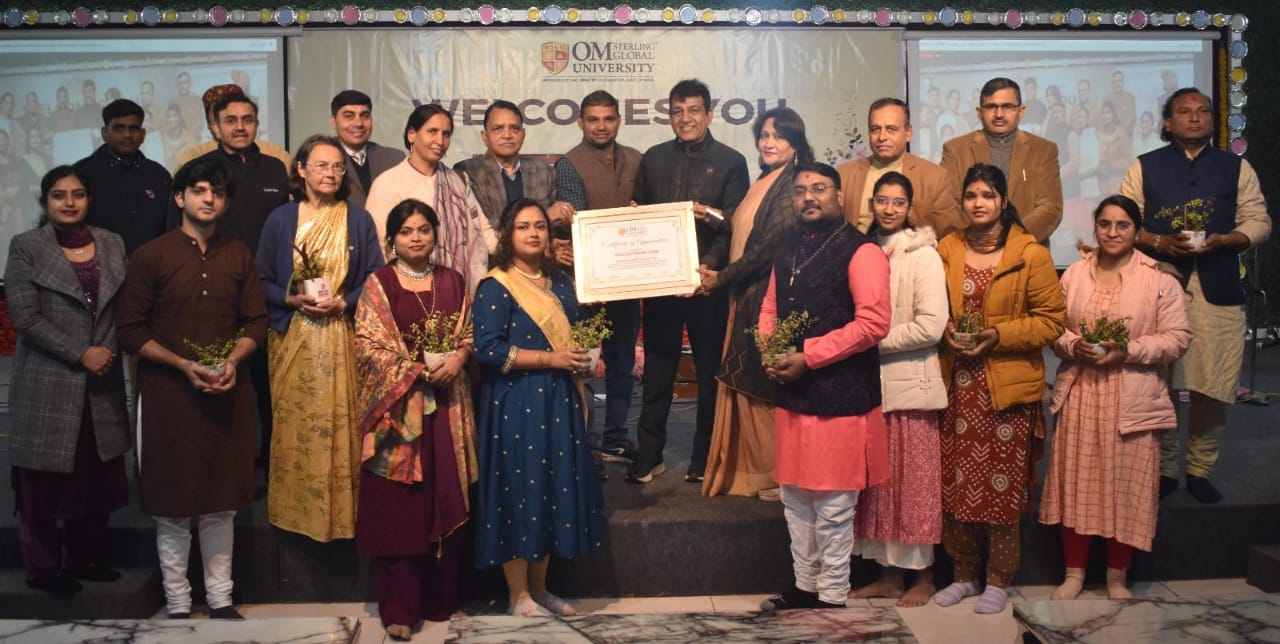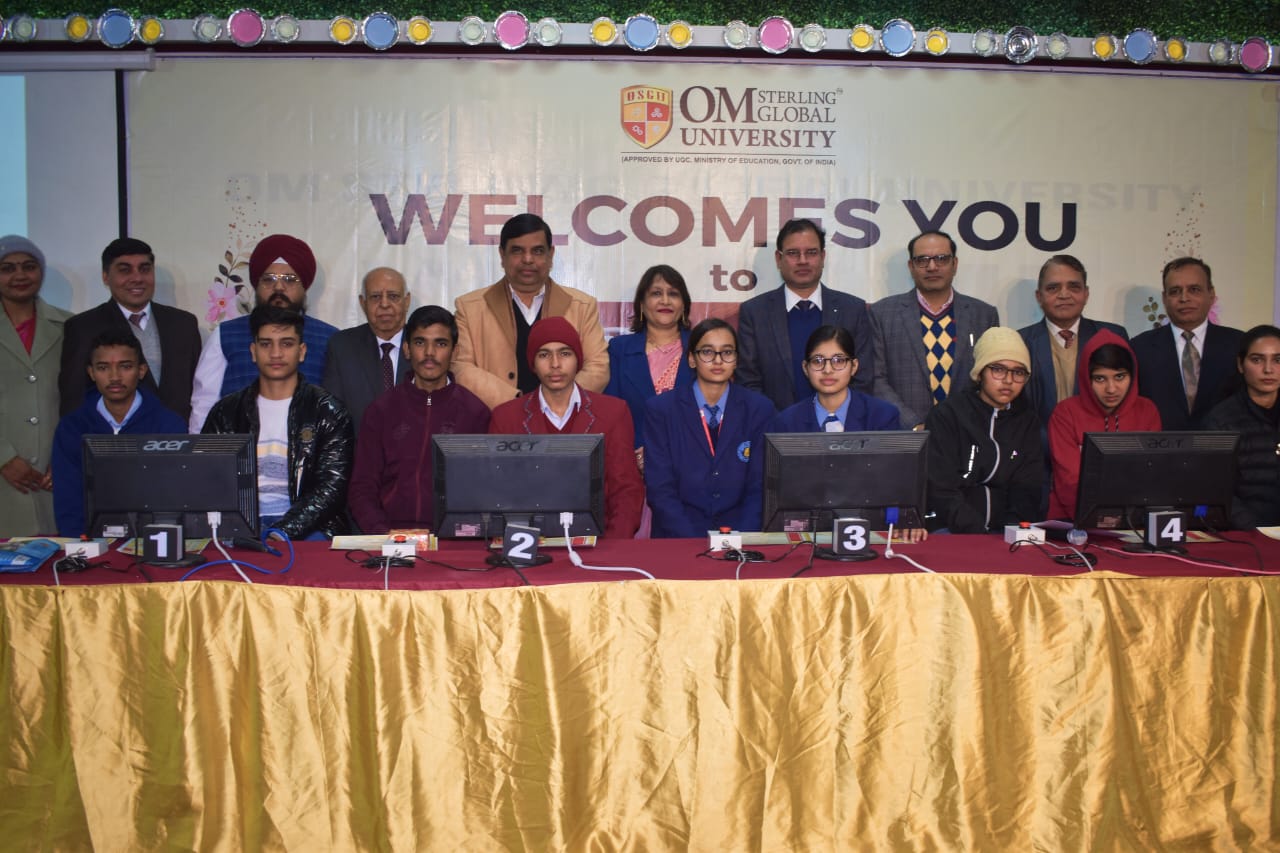
SAS-00

Post Graduation

2 Years
Programme Overview
M.Sc. Zoology is a two-year postgraduate programme that encompasses the study of existing and extinct animals. Under this programme, the students acquire adequate knowledge of Biodiversity and anatomy of animals. Students pursuing M.Sc. Zoology learn about the characteristics and evolution of animal life. The programme also addresses the causes of loss of habitat, disease and effect of climate change on animals life.
In addition, the M.Sc. Zoology programme also introduces the genetic evolution and the environmental conditions necessary for the well being and existence of animal diversity.
M.Sc. Zoology is an advanced programme that focuses on modern technology to study various aspects of animals life.
M.Sc. Zoology programme equally covers theoretical and practical sessions to help students understand the concepts in a better way. Students with an interest in the animal ecosystem and seeking in-depth knowledge of the animal kingdom, their evolution and behaviour can opt M.Sc. Zoology after the completion of an appropriate Bachelor’s degree programme.
Programme Objectives
- To understand the value of fauna and its relevance to the society and our environment.
- To endow the practical skills of immunology, physiology and genetics in diagnosis.
- To understand the impact of Climate change on fauna diversity and their survival etc.
- To equip ourselves to fit for entrepreneur with special attention on Aquaculture, Apiculture, Sericulture, medical lab technology etc.
- To provide wide opportunity in research to address the societal needs.
Programme Outcomes
- Used the evidences of comparative biology to explain how the theory of evolution offers the only scientific explanation for the unity and diversity of life on earth.
- They are able to use specific examples to explicate how descent with modification has shaped animal morphology, physiology, life history, and behavior.
- Explicated the ecological interconnectedness of life on earth by tracing energy and nutrient flows through the environment.
- They are able to relate the physical features of the environment to the structure of populations, communities, and ecosystems.
- Subjects such as invasive or endangered species, embryonic development in mammals and ageing in social insects. Lead to advances in medicine to prevent disease amongst both animals and human beings.
- Developed knowledge and understood of living organisms at several levels of Zoological and Biological organization from the molecular, through to cells and whole organisms and ecosystems all organs of evolutionary perspectives. Understood how the chemistry and structure of the major biological macromolecules, including proteins and nucleic acids, determines their biological properties.
Career Path
After completing the course, an applicant can enter any field of zoology and zoological research. They also have M.Sc. Zoology jobs scope in the media or the environmental and ecosystem management sector. After post-graduation, the aspirant can work with some of the most acknowledged ventures and organizations across the globe such as Discovery, National Geographic, and others.
Some of the jobs which are provided to the candidate are:
- Zoologist
- Wildlife conservationist
- Animal Trainer
- Wildlife Educator
- Zookeeper
- Zoo Officer
- Wildlife Researcher
- Associate Research Scientist
Eligibility Criteria
Minimum percentage and others criteria for admission will be as per UGC/ Concerned Regulatory Bodies.
Provided below are the criteria that need to be met for the given course.
For National Students
- Bachelor Degree in Science in concerned stream or equivalent with relevant subject.
For International Students
- Rule framed by University Grants Commission (UGC) and notified in its website www.ugc.ac.in will be followed for deciding the eligibility and admission of International students to various courses offered in Om Sterling Global University, Hisar.
Programme Syllabus
Semester I
| S.No. | Subject |
|---|---|
| 01. | Biochemistry and Bio-techniques |
| 02. | Cell Biology |
| 03. | Structure and Function of Animals –I Practical |
| 04. | Biosystematics & Evolution Practical |
| 05. | Biochemistry and Bio-techniques |
Semester II
| S.No. | Subject |
|---|---|
| 01. | Structure and Function of Animals –II |
| 02. | Animal Ecology & Wild life |
| 03. | Immunology |
| 04. | Structure and Function of Animals –II Practical |
| 05. | Animal Ecology & Wild life Practical |
| 06. | Applied Zoology –I |
| 07. | Immunology Laboratory |
Semester III
| S.No. | Subject |
|---|---|
| 01. | Animal Behaviour |
| 02. | Animal Behaviour Laboratory |
| 03. | Developmental Biology |
| 04. | Developmental Biology Laboratory |
| 05. | Applied Zoology –II |
| 06. | Molecular biology |
| 07. | Research Methodology & Biostatistics |
| 08. | Credit Seminar I |
Semester IV
| S.No. | Subject |
|---|---|
| 01. | Molecular cytogenetics |
| 02. | Molecular cytogenetics Laboratory |
| 03. | Recombinant DNA Technology |
| 04. | Credit Seminar II |
| 05. | Project |
How to Apply
You can fill-up the Admission Enquiry Form given below if you have any queries regarding the admission procedure of M.Sc. Zoology. Now, if you are unable to decide on which programme to choose, feel free to reach out to us via the FREE tele-counseling button. If you have decided that you pursue MSc Zoology and start a highly rewarding career in this domain, then go ahead and fill-up the Online Application now.



























































